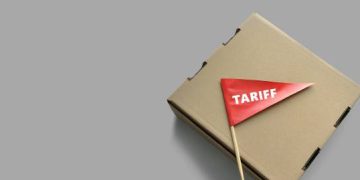By supplychainreport
WASHINGTON — The U.S. administration on Tuesday announced updates to its tariff policy on automobiles and auto parts, easing some of the previously imposed 25% tariffs. The move aims to provide short-term relief for automakers amid concerns that elevated import taxes could negatively impact U.S.-based production and increase vehicle costs.
Automakers and industry analysts have expressed concerns that high tariffs could reduce sales, raise production costs, and make U.S. manufacturing less competitive globally. The revised policy is intended to serve as a transitional measure, encouraging increased investment in domestic manufacturing facilities.
A senior administration official stated that the tariff adjustments were designed to give automakers time to shift and rebuild supply chains while expanding U.S.-based operations. The updated order includes a temporary rebate on tariffs for vehicles assembled domestically using imported parts. For the first year, this rebate equals 3.75% of the vehicle’s sale price, based on imported components making up 15% of the vehicle’s value. In the second year, the rebate drops to 2.5%, reflecting a reduced share of imported content.
The Treasury Department noted that the updated framework supports efforts to create more domestic manufacturing jobs. Industry leaders have responded positively. Stellantis Chairman John Elkann expressed appreciation for the relief measures, emphasizing the importance of a competitive U.S. auto industry.
General Motors CEO Mary Barra welcomed the administration’s approach and highlighted GM’s continued investments in the U.S. economy. Ford CEO Jim Farley noted Ford’s leadership in domestic manufacturing and called for other automakers to match that commitment, suggesting this could result in millions more vehicles being built in the U.S. annually.
The auto sector, which relies on complex global supply chains, has emphasized that changes to production logistics require time and significant investment. According to industry analyst Sam Fiorani, relocating manufacturing operations can take months to years and involve substantial capital expenditures.
In a separate move, the administration clarified that tariffs on imported autos and parts would not be layered atop other tariffs, in an effort to prevent duplicative taxation.
Recent data from Kelley Blue Book showed that new vehicle prices averaged $47,462 last month. Analysts have cautioned that increased tariffs could drive prices higher for consumers and shift demand toward used vehicles, potentially straining the secondary market. Tariff adjustments are seen as part of a broader effort to strike a balance between encouraging domestic production and maintaining affordability for consumers.
While the long-term effects of the broader tariff strategy remain uncertain, administration officials maintain that these changes reflect a commitment to economic competitiveness and manufacturing growth.
#SupplyChainNews #AutoIndustryUpdate #TariffPolicy #ManufacturingUSA #EconomicStrategy















